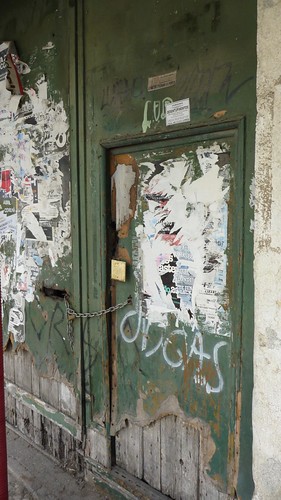
Thats how it feels when everywhere you turn there are victims of some rapidly spreading phenomenon that leaves dispair and suffering in its wake. Here in Lisbon the headlines read “Nation Reduces Its Deficit By 22%” with a sort of pride; the demands of the global bankers are being met. But if you flip the pages of the newspaper, talk to the taxi driver, or the women on her way to work in Lisbon this morning, you’ll hear the painful details: Energy company privatized, raising prices by 30% next year. Most salaries in public and private sector slashed by 8% and higher. Elimination of holiday pay, a yearly bit of income most mid and low income families count on to get by. Government programs for career development, cut. – Everywhere you look it is the average citizen, who for decades has survived on one of the lowest wages in Europe, that now literally pays to get the government out of its massive financial hole.
Somehow the bankers, governments, and many citizens in the rest of Europe will call it a success if Portugal manages to keep reducing its deficit. Many of the same people who, over the past decade, helped plunge the country into its current crisis. The government in Brussels and here in Lisbon will probably pat itself on the back when the good numbers are announced in a few months or (more likely) years.
But what is left of a nation when everything has been cut or sold, and people have been squeezed to a breaking point?
I digress, this is not supposed to be a list of what does or doesn’t need to be done to save Portugal or save the Portuguese economy. This is an open question about the working of the global and European economy. About how we measure what is good and what is bad. While government and financial leaders act as if this is the medicine to cure the country of its ills, they bleed and beat the country through their actions. No I suppose not literally, but if you look around, there is a country full of afflicted people here.